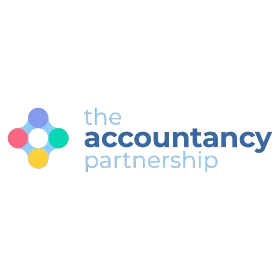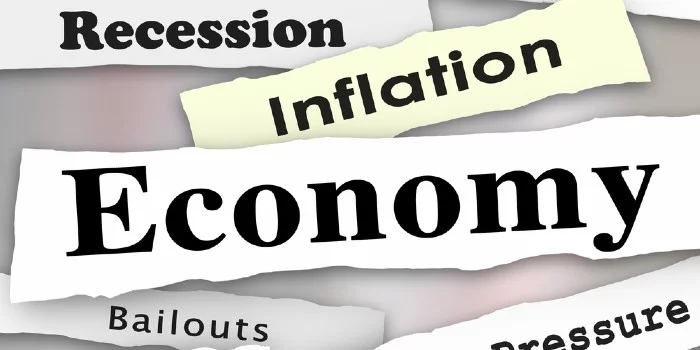Starting a new business is an exciting moment – and the Busines4Beginners team are here to help you for every step along this journey. We’ve already covered important information like:
- The ultimate checklist for starting a business in the UK
- How to overcome the fear of failure when starting a business
- 15 startup business costs to consider
However, there’s one question we get asked a lot. “When do I need to register my business with HMRC?”
So, in this guide, we’ll cover when exactly you need to register your business, how to register and what your registration options are. Ready to make things official?
Why do you need to register your business with HMRC?
All businesses need to be registered with the HM Revenue & Customs (HMRC) for two reasons.
Firstly, it is to prove that your company exists and, in some cases, can legally operate. For example, selling alcohol or working as a street vendor requires a special license to do so, which you will need to register and apply for.
Secondly, it’s to ensure you’re paying the right tax. The HMRC doesn’t take too kindly to those who evade tax. If you want to avoid hefty fines and penalties, it’s best to make sure that you’re registered.
For some people, registering your business with the HMCR can be a monumental occasion.
It may seem insignificant to some of life’s other events (like the birth of your first child), but it does make the official start of your business. And if you’re registered as a Limited Company, registering will also protect your name and brand.
As early as now, it’s wise to start asking questions such as, “When do I need to register my business with HMRC?”
Recommended – Top-Rated Online Accountant:
Can you run a business without registering it?
Technically, yes. You can run a business without registering it.
But this only works in the very set circumstance where you do not exceed more than £1,000 in income per year. So, if you’re running a hobby as a business but don’t want to take it any further, you can keep it unregistered.
If you’re going to exceed the £1,000 income limit, then you need to declare your business to HMRC.
Do I need to register my business as a sole trader?
Yes, even if you are a sole trader, you must register your business with HMRC. Unless you make less than £1,000 in income annually, you can leave your business unregistered.
Unless your business is a casual hobby that you intend to leave under £1,000 in income, you will need to register your business as a sole trader. However, unlike limited companies, you don’t have to register with Companies House, so that’s less paperwork on your end.
All that’s needed for a sole trader is to register with HMRC and ensure that you return (and pay!) your self-assessment tax each year. Easy peasy.
When do I need to register my business with HMRC?
To avoid any fines or penalties, we’d recommend getting your business registered with HMRC as soon as you can.
But if you’d rather take it slow and softly launch your business (either as a hobby or while you’re employed full-time), you will need to register as soon as you are about to exceed £1000 in income.
The important word to remember here is income. Not profits. It doesn’t matter what your profits look like, but if you bring more than £1000 into your business in a single tax year, you must be registered with HMRC.
What happens if you don’t register your business in the UK?
Now that you know the answer to “When do I need to register my business with HMRC?” you may wonder what will happen if you don’t.
Well, if you exceed £1,000 in income and haven’t registered your business, you will face some hefty fines and punishment from the HMRC.
At the bare minimum, you will be held liable to pay for any taxes that you have missed. In addition, you can be issued hefty fines and a failure to notify penalty, which can cost up to 100% of the tax owed – on top of paying back your taxes.
Depending on the severity of the issue (i.e. how long you’ve been unregistered and how much income you have not declared), you could also be subject to a prison sentence of two years for “failure to register”.
Long story short: not registering will cost you and your business.

What are the company types I can register my business as?
There are many different types of company structures that you could register your business as, all with their own unique benefits and regulations. To keep things simple, we’ll break this down into the two most common company structures.
Sole trader
This is where you have full responsibility, owning and operating your business. Essentially, you are your business. This is great for a lot of startups, especially in trade.
Limited company
This is where your company is owned by shares and operated by directors. This makes your company its own legal entity, giving you much more protection.
To help you understand the differences and advances of these company structures, we’ve done a full breakdown of being a sole trader vs a limited company.
However, remember that this decision doesn’t have to be final. Many businesses start out as sole traders, using the increased freedom to get the ball running – and then change from a sole trader to a limited company as profits start to grow.
To throw a spanner in the works (and to make sure you have all the information), there are also not-for-profit company structures that you could register as.
But unless you’re thinking of setting up a charity or cooperative society, just stick to the two above.
How do I register my company with HMRC?
The way to register your business with HMRC depends on what company structure you opt for.
If you choose a sole trader, you will need to register for self-assessment (and make sure that you fill out and pay your self-assessment tax returns). It’s the simplest process and one of the reasons why many startups favour being sole traders.
If you choose a limited company, then you actually need to register your business with Companies House first. We’ve detailed the steps involved in that process below.
Once registered with Companies House, you can register with HMRC for Corporation Tax if you haven’t already done so.
Which Company Formation Package Is Right For You?
Answer 5 multiple choice questions to get a personal recommendation:
Do you need to register your business with Companies House?
Only certain company types will need to register with Companies House, which is the official register of businesses in the UK. For example, if you want to set up a limited company, you will need to register with Companies House.
To complete this process yourself, you will need to:
- Have a name ready that follows Company House guidelines and isn’t already in use.
- Have a registered office address, which can be your personal address. If you want to protect your privacy, you might want to consider using a registered office address service through a company formation agent.
- Appoint directors and shareholders. If you’re manning the ship alone, you can act as sole director with 100% of the shares.
- Create your official documents, including a memorandum of association.
You can find out more about forming a limited company in our complete guide here.
Or, if you’d rather save time, stress and energy – why not try one of our top-rated company formation agents to handle all the paperwork on your behalf?
Top-Rated Company Formation Agents
| Formation Agent | Cheapest Package | Add On Services | Our Rating | Review | Official Site |
|---|---|---|---|---|---|
 | £12.99 | Excellent | 9.4 | Read Review | Visit Website |
 | £11.99 | Excellent | 9.4 | Read Review | Visit Website |
 | FREE | Average | 9.4 | Read Review | Visit Website |
If you want to hire employees…
If you’re planning on hiring staff, then you will also need to register as an employer with HMRC. You’ll also need to make sure that you take out the employer’s public liability insurance and set up payroll to pay your employees a fair wage.
Don’t worry, though. Payroll isn’t as hard as it sounds.
We’ve got a complete guide to everything you need to know about payroll – and we’ve tested the best accounting solutions that can take care of it for you.
When do I need to register my business with HMRC: a summary
If you have a business exceeding £1,000 in income, then you need to ensure that your business is registered with HMRC.
The exact steps for registering your company will depend on the company structure that you opt for.
Sole traders must inform HMRC that they will carry out self-assessment tax returns. It’s a simple process that takes minutes from the HMRC website.
On the other hand, limited companies must officially register with Companies House, which will require additional materials such as a (allowed) company name, registered office address and official documentation.
However, you don’t have to register a limited company by yourself. Company formation agents can fill out all the paperwork for you.
They can even provide monitored address services on your behalf. Ready to register your business? Get started with our top-reviewed company formation agents here.
For all other advice, news and tips, make sure you check back in with Business4Beginners.








